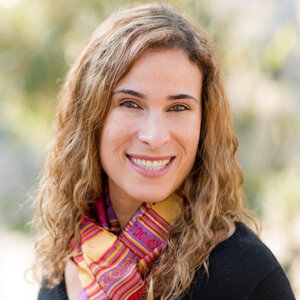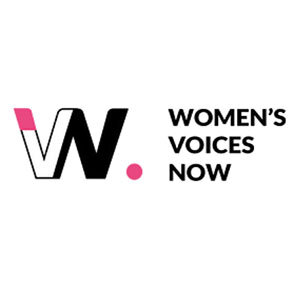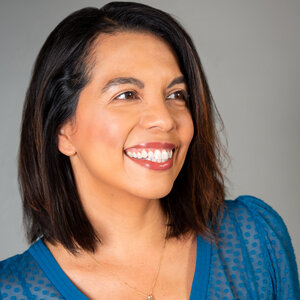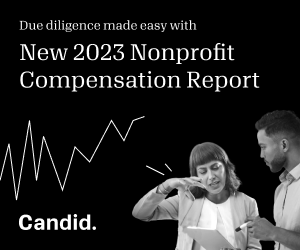The ‘overreaching’ of women’s rights that stands to benefit us all

“We have gone so far in promoting women’s equality that we are discriminating against men.” According to a study published in March by Ipsos UK and the Global Institute for Women’s Leadership at King’s College London, 55 percent of men and 41 percent of women polled across 32 countries agreed with that statement. The percentages were notably high in Thailand (80 percent of men and 77 percent of women), India (75 percent and 74 percent), Saudi Arabia (74 percent and 74 percent), and the United Arab Emirates (76 percent and 64 percent).
At the same time, United Nations secretary-general António Guterres declared at the 67th Commission on the Status of Women that the progress made over decades toward gender equality is “vanishing before our eyes” and we are now 300 years away from achieving full gender equality.
It is true that due to the ongoing impact of the COVID-19 pandemic, violent conflict in several countries, and other natural and human-made disasters, women and girls are suffering disproportionately. It is also true that, from the mid-1990s until 2015, global increases in gender equality substantially lowered and even removed barriers to women’s educational, economic, social, and political participation. The Ipsos survey found that 53 percent of respondents agreed that gender equality is good for both genders, while 11 percent believed that it benefits neither men nor women.
If a majority—if only just over half—of us agree that women’s equality benefits us all, shouldn’t a majority also acknowledge that regressing on the journey toward gender equality negatively impacts us all? So why do so many see gender equality as a zero-sum game?
A global decline in freedom
According to Freedom House’s 2023 edition of its Freedom in the World report, we are now in the 17th consecutive year of a global decline in freedom. In 2022, war, coups, and attacks on democratic institutions by illiberal incumbents resulted in the most serious setbacks for freedom and democracy. As Harvard Kennedy School’s Zoe Marks has said, “authoritarians often rely on the overrepresentation of male power (patriarchy)—in both public and private life—to consolidate their power and chip away at crosscutting social coalitions.” Consequently, the erosion of democracy, simultaneously and immediately, affects the safety and dignity of women.
The continued revocation of women’s rights in Taliban-ruled Afghanistan, the overturning of Roe v. Wade in the United States and its ripple effects around the globe, and the brutal suppression of the women-led protests in Iran are just a few examples of how oppressive authorities view gender equality as a severe threat to their power. Yet, while the war against women and democracy is actively being waged, if we take a bird’s-eye view, there is reason for hope. When Freedom House published its first global survey in 1973, 44 out of 148 countries were rated “Free”; today, 84 of 195 countries are “Free.” We can deduce from this data point that the overall trend is toward freedom and the institutions and ideas that support it. One of those ideas is gender equality.
Going even farther with women’s rights
Gender equality is a keystone of democracy, freedom, and greater opportunity for all human beings. What do we, as a philanthropic community, need to do right now? Knowing that women’s rights are increasingly viewed as a zero-sum game—stacked against men—especially among Gen Z and millennials, how do we promote and better support gender equality and mitigate the current backlash? Let’s tackle the easier one first.
Let’s give more to organizations supporting the advancement of women and girls. The 2022 Women and Girls Index from the Women’s Philanthropy Institute at the Indiana University Lilly Family School of Philanthropy found that only 1.9 percent of all philanthropic giving went to nonprofits focused on women and girls (up from 1.6 percent in 2018). Yet women’s and girls’ organizations are growing in number, size, and reach faster than other nonprofits, with revenues and expenses increasing across the board. There is a tremendous opportunity to create a far-reaching impact. In this moment of backlash against women’s rights, now is the time to consider expanding our giving portfolios to be inclusive of more and varied types of women’s and girls’ organizations. When women thrive, humanity thrives. Increased resources will most certainly yield high returns on investments.
On the matter of the alleged rising resistance to gender equality, the Ipsos poll also tells a more nuanced story that can help us move forward, together. While half of respondents agreed that men are expected to do too much to support gender equality (54 percent) and men are being discriminated against (48 percent), an even greater percentage (62 percent) said that there are actions they can take to help promote equality. A paradox and one more layer of complexity: While 37 percent of respondents reported feeling scared to speak out to advocate for women’s rights because of possible negative repercussions, the most commonly cited barrier to taking action promoting gender equality was the sense that there’s nothing they can do that will really make a difference (13 percent).
We have another opportunity to strengthen the work of women’s and girls’ rights organizations: improving our communication, outreach, and inclusion. At Women’s Voices Now, we use film to drive social change that advances girls’ and women’s rights globally. We do this by facilitating a shared experience of a film or films about women that are made for the benefit of all, talking about it in mixed company, and concluding with a call to action. In our work, from Romania to Kenya, the United States to Iraqi Kurdistan, it is the actions of individuals that have led to some of the most substantive transformation in attitudes toward women and girls. Superficial change can be codified from the top down in the form of quotas, legislation, and court rulings, but true, long-term shifts in culture and identity around the value of gender equality only comes from conversations in safe spaces among trusted members of a community and the actions that come out of those discussions. When the two approaches to gender equality meet in the middle, that is when real gains toward gender equality are made.
For the rising numbers of global citizens who support gender equality, the real story is that we are in need of more entry points and more interactions with the women’s and girls’ organizations leading the charge that will contribute to the success of us all.
Heidi Basch-Harod is the executive director of Women’s Voices Now, a Los Angeles-based nonprofit organization using film to drive social change that advances girls’ and women’s rights globally.








Meet the Southern warriors for the future we deserve